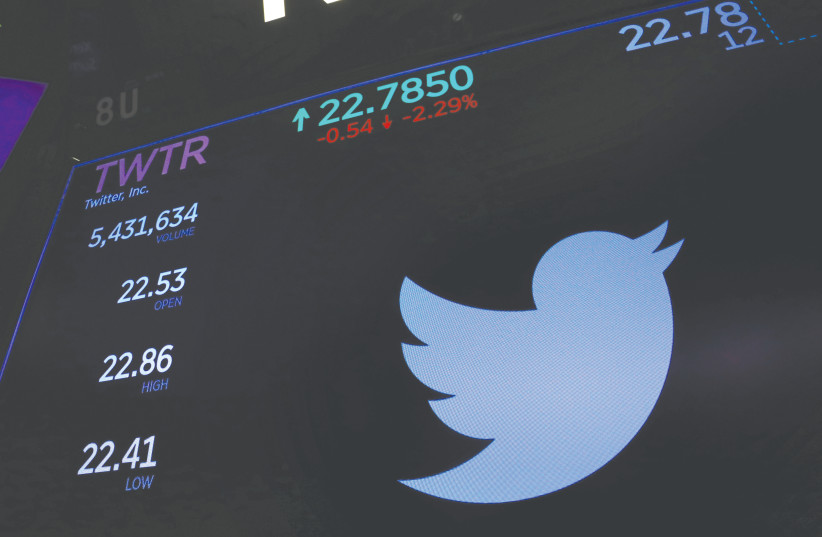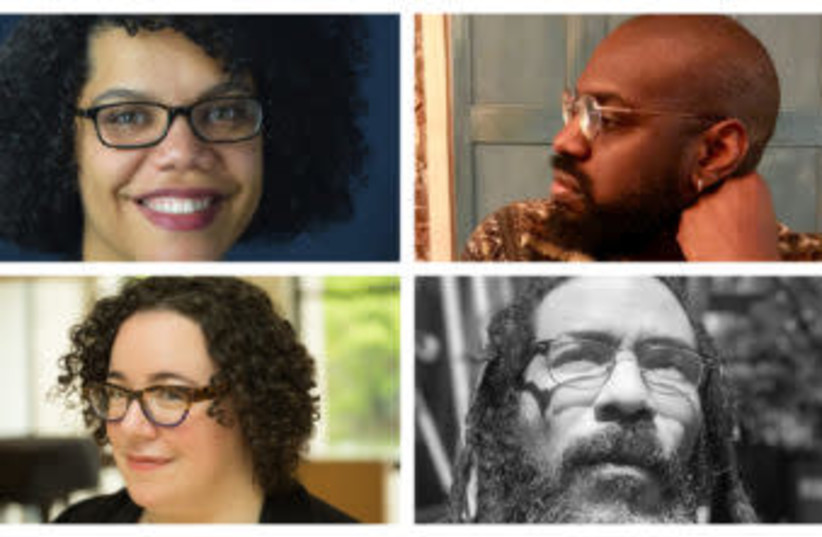 KONOPIE INDYJSKIE NOWYM HITEM EKSPORTOWYM IZRAELA?
KONOPIE INDYJSKIE NOWYM HITEM EKSPORTOWYM IZRAELA?
TOMASZ SKOWRONEK
 fot. noexcusesradio, pixabay.com
fot. noexcusesradio, pixabay.com
Kneset zgodził się na eksport medycznej marihuany. Jak wygląda zielona gorączka w Izraelu?
Izrael jest nieoficjalną stolicą start-upów na świecie: w kraju, w którym mieszka zaledwie około 7 milionów ludzi, powstało ich więcej niż w Japonii, Indiach, Korei Południowej czy Kanadzie. Izraelskie start-upy są uznawane za pionierskie między innymi w dziedzinie cyberbezpieczeństwa, sztucznej inteligencji, dronów i rolnictwa. Mało kto jednak zdaje sobie sprawę, że Izrael wiedzie prym również w badaniach nad medyczną marihuaną.
To dzięki wypracowanemu w tym kraju know-how od ponad 10 lat można tu w celach medycznych stosować produkty z konopi indyjskich. Ponadto Kneset dał zielone światło eksportowi medycznej marihuany. Szacuje się, że dzięki temu państwo będzie zarabiać 4 miliardy szekli rocznie (ponad 4 miliardy złotych).
EDEN I JALI
Piętnastoletni Eden od najmłodszych lat cierpi na padaczkę. Jego historię opisał „Washington Post”. Ataki zdarzały się bardzo często, nawet kilka razy dziennie. Ponieważ napady padaczkowe bywają intensywne, w ułamku sekundy można upaść na ziemię bezwładnie jak worek. Na urazy najbardziej narażona jest głowa, choć można też złamać sobie żebra, rękę, wybić staw czy uszkodzić łękotki podczas upadku na kolana. Aby Eden nie zrobił sobie krzywdy, musiał zakładać specjalny kask ochronny. Jego rodzice wciąż się o niego martwili, a wizyty u lekarzy oraz dziesiątki badań, rezonansów i tomografów nie wnosiły do sprawy niczego nowego: ataki nie ustępowały, utrudniając chłopcu normalne funkcjonowanie. Wszystko się zmieniło, gdy pewien neurolog z telawiwskiej kliniki przepisał Edenowi receptę na olej z konopi indyjskich. Po zastosowaniu kuracji liczba napadów zmniejszyła się aż o połowę. „To dla nas zupełnie nowe życie” – powiedziała redakcji „Washington Post” Avigael Ka’atabi, matka chłopca. Uważa, że dzięki leczniczej marihuanie objawy choroby są znacznie słabsze.
W podobnym tonie wypowiada się Jael Braha, matka 10-letniego Jaliego, dla hiszpańskiego wydania „National Geographic”. Jej syn również cierpi na padaczkę, która ujawniła się, gdy chłopiec miał zaledwie 4 miesiące. „Choroba zdeterminowała całe nasze życie” – przyznaje Jael. Zanim jej syn zaczął zażywać marihuanę, przyjmował sześć różnych leków. Na początku były skuteczne, ale efekt utrzymywał się tylko przez pewien czas. Rodzice nieustannie próbowali nowych terapii i odwiedzali kolejnych lekarzy. Była to dla nich niezwykle trudna sytuacja, przepełniona lękiem o przyszłość syna. Gdy jesienią 2014 roku dziecko zapadło w śpiączkę, matka poprosiła lekarza o wypisanie recepty na konopie. Obecnie choroba Jaliego nie daje żadnych objawów. Jego matka zapewnia, że od początku terapii bazującej na medycznej marihuanie nie miał ani jednego ataku.
80 TON MARIHUANY ROCZNIE
Eden i Jali są jednymi z wielu dzieci cierpiących na epilepsję, które są leczone w Izraelu medyczną marihuaną. Roślina stosowana jest także jako środek przeciwbólowy, aby złagodzić cierpienie w przypadku raka, stwardnienia rozsianego, choroby Parkinsona, stresu pourazowego czy w zaburzeniach snu. W całym kraju z tego typu leczenia korzysta około 30 tysięcy osób. Dzięki dotacjom państwowym lokalne firmy opracowują coraz to nowe leki na bazie marihuany.
Izraelski koncern Breath of Life Pharma (BOL) to jeden z największych na świecie producentów medycznej marihuany. Niedawno w centralnej części kraju zbudował najnowocześniejszy zakład, w którym uprawia się konopie indyjskie.
Jak zaznacza właściciel koncernu, dr Tamir Gedo, jego firma jest w stanie magazynować takie ilości marihuany medycznej, które wystarczyłyby do zaopatrzenia całych Stanów Zjednoczonych. Szacuje, że docelowo BOL będzie w stanie wyprodukować aż 80 ton marihuany rocznie. Nie ukrywa, że większość wyrobów ma być przeznaczona na eksport.
Koncern uprawia głównie dwa najbardziej znane kanabinole, czyli THC i CBD. Ten pierwszy jest składnikiem psychoaktywnym odpowiedzialnym za „wysoką” marihuanę. Pomaga także w bólu i nudnościach, co czyni go bardzo pożądanym lekiem dla pacjentów poddawanych chemioterapii.
Z kolei CBD wpływa na układ autoimmunologiczny i działa przeciwzapalnie. Badacze weryfikują jego skuteczność w przypadku chorób zapalnych jelit (w tym choroby Crohna i wrzodziejącego zapalenia jelita grubego). Do tej pory okazał się efektywny w stanach takich jak autyzm, padaczka, cukrzyca i choroby serca. Dwa lata temu naukowcy z Uniwersytetu Telawiwskiego odkryli, że CBD może być skuteczne również w leczeniu złamanych kości i ewentualnych innych chorób układu kostnego.
Jak zapewnia Gedo, produkcja medycznej marihuany jest prowadzona zgodnie z najwyższymi standardami. – Jesteśmy firmą farmaceutyczną, a nie producentem konopi indyjskich – tłumaczy.
Inny izraelski koncern, położony w Górnej Galilei Tikun Olam (jego nazwa oznacza po hebrajsku „naprawę świata”), prowadzi badania nad nowymi szczepami. Udało się mu np. wyhodować szczep o nazwie Rafael (pochodzi od imienia uzdrawiającego anioła wezwanego przez Mojżesza), przeznaczony m.in. dla dzieci z epilepsją. Poza tym firma prowadzi w Tel Awiwie centrum dystrybucji, które jako pierwsze w kraju sprzedawało legalnie konopie. Aby wejść na teren kompleksu oferującego zioła, tabletki oraz olejki z konopi indyjskiej, należy okazać specjalne zezwolenie od lekarza. W sumie od 2010 roku przez to miejsce przewinęło się 10 tys. pacjentów, a roczne obroty firmy wynoszą około 10 milionów szekli.
Z kolei start-up o nazwie Syqe Medical, założony przez przedsiębiorcę Perry’ego Davidsona, który już na początku lat 90. zainteresował się konopiami, stworzył inhalator pozwalający na precyzyjne dawkowanie medycznej marihuany. Jak zauważają pracownicy firmy, urządzenie to rozwiązuje problemy wiążące się z przepisywaniem pacjentom rośliny do palenia. Dzięki niemu po raz pierwszy można przyjąć dokładną dawkę.
Wszystkie te firmy być może nie powstałyby, gdyby nie odkrycia izraelskiego chemika bułgarskiego pochodzenia, Raphaela Mechoulama. W 1963 roku jako młody badacz zabezpieczył 5 kilogramów libańskiego haszyszu, który został skonfiskowany przez jego przyjaciela na posterunku policji w Tel Awiwie.
Zespół badawczy kierowany przez profesora Mechoulama na Uniwersytecie Hebrajskim w Jerozolimie rozpoczął kompleksowe badania nad medycznym zastosowaniem marihuany. To właśnie Mechoulam jako pierwszy na świecie wyizolował THC w 1964 roku i odkrył, że marihuana może działać leczniczo. Udało mu się też wcześniej niż inni zdekodować strukturę CBD, głównego niepsychoaktywnego składnika rośliny. Od tamtej pory 88-letni obecnie profesor opublikował około 300 artykułów naukowych i zasłynął jako ojciec medycznej marihuany.
WSPARCIE OD PAŃSTWA
Kreatywne podejście Mechoulama miało wpływ na powstanie branży mocno wspieranej obecnie przez izraelskie władze. Dzieje się tak na różne sposoby: rząd ustanawia standardy dotyczące uprawy, przechowywania i stosowania marihuany leczniczej, a Uniwersytet Hebrajski w Jerozolimie posiada jeden z najlepszych na świecie ośrodków specjalizujących się w badaniach dotyczących kannabinoidów. Volcani Center, organizacja badawcza izraelskiego Ministerstwa Rolnictwa, buduje narodowy instytut zajmujący się badaniami nad marihuaną. Ministerstwo Gospodarki milionami szekli wspiera innowacyjne firmy medyczne, a Ministerstwo Rolnictwa przyznaje licencje nieograniczonej liczbie plantatorów. Ponadto, jak zapowiadają rządzący, na liście lekarzy przeszkolonych i uprawnionych do przepisywania medycznej marihuany mają pojawić się nowe nazwiska.
– Powaga, z jaką izraelska społeczność podchodzi do badań nad konopiami, jest niesamowita – mówi Charles Pollack, dyrektor Lambert Center for Study of Medicinal Cannabis and Hemp na Thomas Jefferson University w Filadelfii. – Izrael jest siedzibą nowoczesnych ośrodków badań nad konopiami indyjskimi. To dlatego, że w kraju panuje o wiele bardziej korzystny klimat regulacyjny, umożliwiający przeprowadzanie istotnych badań nad medyczną marihuaną. Nic więc dziwnego, że coraz więcej amerykańskich firm zaczyna tutaj działalność – zwraca uwagę w rozmowie z magazynem „Rolling Stone”.
W USA już 30 stanów zezwoliło na korzystanie z marihuany w celach medycznych, ale jeśli weźmiemy pod uwagę poziom federalny, wciąż jest to substancja nielegalna. Co za tym idzie, mimo nowoczesnych ośrodków badawczych i rozwiniętej technologii amerykańskie firmy badające i produkujące konopie napotykają szereg blokad stawianych przez przepisy prawa federalnego.
Tymczasem w Izraelu firmy o tym profilu mogą działać bez większych przeszkód. Co najmniej 50 amerykańskich producentów konopi indyjskich przeniosło więc swą działalność badawczo-rozwojową do tego bliskowschodniego kraju.
WSZYSCY „ZA” MEDYCZNĄ MARIHUANĄ
Warto zaznaczyć, że tak legalizacja, jak i eksport medycznej marihuany cieszą się szeroką aprobatą pośród społeczeństwa i polityków. Nie tylko centrowe i lewicowe partie (te ostatnie opowiadają się nawet za legalizacją i regulacją rynku konopi w celach rekreacyjnych), ale również prawicowe, religijne i sefardyjskie ugrupowania polityczne nie sprzeciwiają się liberalnej polityce rządu.
Była prawicowa minister sprawiedliwości Ajjelet Szaked w rozmowie z CNN stwierdziła, że „bez względu na to, czy popiera się używanie konopi indyjskich czy sprzeciwia się temu, niewłaściwe jest ocenianie użytkowników konopi na podstawie prawa karnego”. Mosze Feiglin, przywódca skrajnie prawicowej partii Zehut, także popiera legalizacją medycznej marihuany. Rabini również dają „zielone światło” producentom konopi, jak i użytkownikom.Chaim Kaniewski i Yitzchok Zilberstein, jedni z najsłynniejszych ultraortodoksyjnych rabinów w Izraelu, stwierdzili, że marihuana powinna być dozwolona ze względu na jej zastosowanie medyczne.
Tak naprawdę trudno znaleźć w Izraelu znaczącą partię czy organizacje, które sprzeciwiałyby się stosowaniu konopi w celach medycznych. Wyjątek stanowił tu tylko Gilada Erdana, były minister spraw wewnętrznych, który obawiał się, że poprzez legalizację medycznego użycia marihuana może stać się bardziej dostępna „na ulicy” i dla nieletnich. Nic dziwnego, że przy tak liberalnym podejściu rządu do medycyny konopnej wiele firm chętnie angażuje się w ten biznes.
ZIELONA GORĄCZKA W KIBUCACH
Nie tylko lokalne i zagraniczne firmy wykorzystały boom na marihuanę. „Zielona gorączka złota” ogarnęła również kibuce, czyli izraelskie spółdzielcze gospodarstwa rolne, w których ziemia i środki produkcji są własnością wspólną. Gdy powstało państwo Izrael, zajmowały się one głównie rolnictwem i w ten sposób karmiły cały kraj. Jednak wraz z rozwojem wolnego rynku i nasileniem się procesów globalizacyjnych w latach 90. młodzi zaczęli porzucać kibuce – zwłaszcza że w tym samym czasie w państwie rozwijała się kwitnąca także obecnie branża technologiczna. Spółdzielnie nie najlepiej przetrwały ten okres, ale teraz upatrują swoją szansę w uprawie konopi indyjskich. Członkowie kolejnych kibuców składają więc wnioski o licencję na jej badanie, uprawę lub dystrybucję. Liczą na szybkie wejście na rodzący się na naszych oczach rynek legalnych towarów zwierających medyczną marihuanę, celując przede wszystkim w towary przeznaczone na eksport. Od takiej wizji wielu rolnikom robi się już zielono przed oczami – tyle że nie od marihuany, lecz od pieniędzy.
Wydaje się, że izraelski rząd w odpowiednim momencie zezwolił na eksport medycznej marihuany. Na międzynarodowym rynku zapanowało bowiem duże ożywienie wywołane przede wszystkim rozluźnieniem restrykcji obowiązujących w Ameryce Północnej i Południowej. Do tej pory także 17 krajów europejskich zalegalizowało medyczną marihuanę, a w ostatnim czasie podobną drogę przeszła choćby Tajlandia.
Według szacunków firmy Arcview Market Research za trzy lata ziołowy przemysł będzie globalnie wart 32 miliardy dolarów – o 22% więcej niż dzisiaj. Powstały już wyspecjalizowane fundusze inwestujące w tę branżę. Rząd Izraela dąży więc do globalnej dominacji w tym prężnie rozwijającym się przemyśle. Biorąc pod uwagę liberalne podejście Knesetu i rozwiniętą technologię, cała operacja może się zakończyć pomyślnie. W ten sposób w ciągu kilku lat konopie z Izraela mogą odnieść światowy sukces i stać się kolejnym wielkim hitem eksportowym Ziemi Świętej.
Zawartość publikowanych artykułów i materiałów nie reprezentuje poglądów ani opinii Reunion’68,
ani też webmastera Blogu Reunion’68, chyba ze jest to wyraźnie zaznaczone.
Twoje uwagi, linki, własne artykuły lub wiadomości prześlij na adres:
webmaster@reunion68.com



 T
T